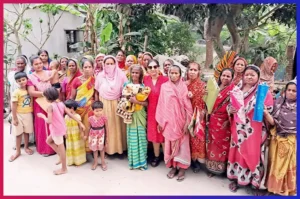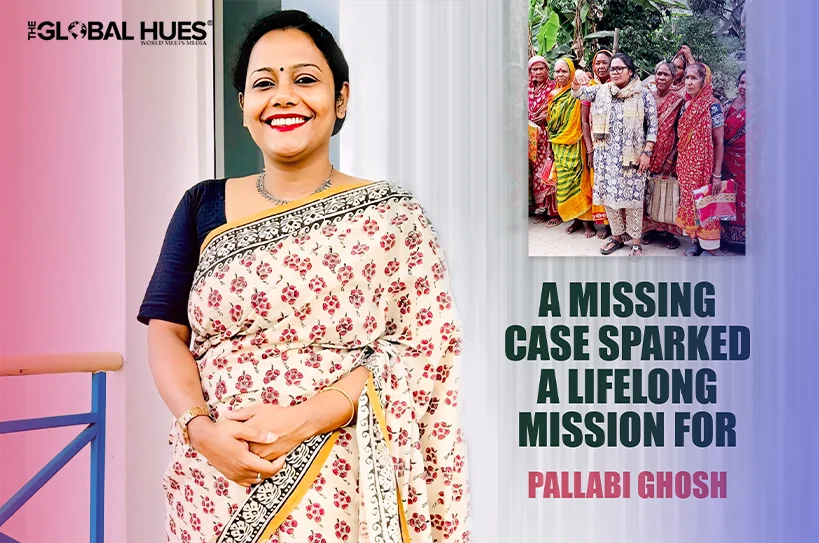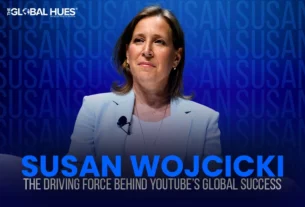Imagine going to a village for a vacation and learning that a girl is missing. As a little child, it might not bother you. However, a 12-year-old Pallabi was bothered.
More than 20 years ago, Pallabi visited a village in the South 24 Parganas district of West Bengal with her uncle. One day, she saw a man desperately running around, saying his daughter was missing, and he had searched everywhere. This shocked her because, coming from the small railway town of Lumding, she knew that in small towns, people usually know each other and their whereabouts. She wondered how a child could go missing, and no one knew anything. Pallabi tried to search for the girl but found no clues. Feeling dejected, she wrote down the names of the missing child’s father and the village before returning home.
Her curiosity to understand more introduced her to the term ‘trafficking.’ All the research related to trafficking made her more determined to work towards preventing this crime. She started visiting police stations, completed her graduation and decided to prevent this crime. She joined an organisation to understand more and eventually decided to incept ‘Impact and Dialogue Foundation’ to start the movement against trafficking.
Pallabi mentions, “I never thought that I would work in the anti-trafficking area. When I was 12, I went to West Bengal for vacation. There I came to know that a girl was missing. I wasn’t bothered since I was just 12 years old. However, slowly things started to bother me– like how could no one know about a missing girl in a village with only one entry and exit point? When I asked around, people laughed it off because they didn’t take it seriously.”
“Most were more interested in cases like murder or robbery. I started researching alongside my studies and after graduating, I joined an organisation as I knew various regional languages. After working with several organisations and gaining experience, I started my own organisation.”
How Does A Rescue Operation Work?
Pallabi gets information from different sources, which is then verified for accuracy. Once the information is confirmed as valid, the existence of the location is checked. Then she, along with the police, goes to save the victims. To avoid being misled by false information, she also cross-verifies details with the victims’ families.
“Once the victims are rescued, they undergo medical tests. If the victim is a small child, they are presented before the Child Welfare Committee. If they are an adult, they are brought before the court, and a home investigation follows. Moreover, if they have been assaulted, we ensure an FIR is registered, and several acts, such as POSCO (Protection of Children From Sexual Offences), are applied,” explains Pallabi.
There are many cases that haunt Pallabi. One such case involved a girl who had been beaten badly and her body was covered in bruises, due to continuous torture. What angered Pallabi the most was that the accused was released scot-free. The most important issue here is the huge time gap between the victim’s rescue and the trial. During this period, most victims forget crucial information and sometimes even the language.
Reasons Behind Human Trafficking

Poverty, illiteracy and unemployment are some of the reasons behind the increasing cases of trafficking. As Pallabi states, “Everything is connected from poverty to illiteracy to unemployment. Trafficking works on a demand and supply basis; the flesh trade is the second largest billion-dollar industry after arms and ammunition.”
There are different purposes for trafficking– prostitution, child labour, forced marriage, debt bondage, organ trafficking, and more. Trafficking often involves children because they can be easily tortured, intimidated or assaulted. Even though the government has implemented a lot of schemes, the primary issue is underreporting. Not everyone can go to the police station to report cases.
“I want people to start talking about anti-trafficking. People don’t talk about it. Even big companies and MNCs are reluctant to discuss it. We need camps, discussions, and workshops on trafficking on a large scale,” states Pallabi while talking about the possible solutions. She further adds, “If you see a small child working in small shops or offices, you just have to call a helpline number, it will help create a lot of difference in that child’s life.”
Impact and Dialogue Foundation teaches children to learn their parent’s numbers so that if they are isolated or lost, they can at least call their parents. It’s crucial to understand that anyone can be trafficked. Ultimately, we need to initiate conversations about trafficking and raise awareness.




